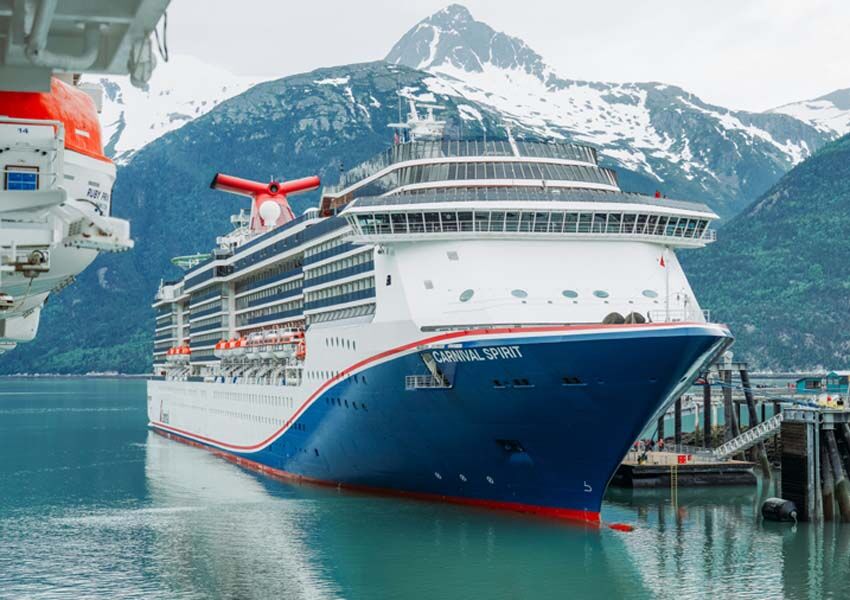What would happen if B.C. restricted truck traffic in Alaska

British Columbia’s proposal to impose tolls on commercial trucks passing through the province on their way to Alaska has raised significant concerns among stakeholders, especially shipping services companies. The measure is part of a broader response to the threat of U.S. tariffs.
Potential Impacts on Alaska:

Increased Transportation Costs: Tolls could raise the cost of transporting goods by truck to Alaska, potentially leading to higher prices for consumers.
Supply Chain Disruptions: Essential goods, particularly perishable items like fresh produce and critical supplies for industries such as oil, may face delays or increased costs. Alaska State Senator Robert Myers, also a commercial trucker, highlighted that while over 90% of Alaska-bound cargo is shipped by sea, trucks are vital for high-value, time-sensitive goods.
Reactions from Affected Regions:
Local Economic Concerns: Mayor Rob Fraser of the Northern Rockies Regional Municipality in British Columbia expressed that tolls could significantly reduce commercial traffic, further impacting an already struggling local economy. The Alaska Highway remains a crucial economic driver for communities in this region.
Industry Opposition: The British Columbia Trucking Association opposes the proposed tolls, fearing potential retaliation and negative impacts on the province’s trucking industry. Dave Earle, the association’s president, emphasized concerns about the broader implications of such a policy.
Political Responses:
Alaska’s Stance: Governor Mike Dunleavy hopes for federal solutions to the tariff disputes and cautions against unilateral actions that could hinder negotiations.
Yukon’s Measures: Yukon Premier Ranj Pillai announced halting purchases from American companies and limiting U.S. businesses’ access to government contracts, reflecting broader regional responses to the trade tensions.
In summary, while the proposed tolls aim to counter U.S. tariff threats, they risk escalating trade tensions and could have unintended consequences for both Alaskan consumers and local economies in British Columbia. The situation underscores the complex interdependencies in regional trade and the potential fallout from protectionist measures.
British Columbia’s proposal to impose tolls on commercial trucks traveling through the province to Alaska has raised concerns among various stakeholders. While the primary aim is to counter U.S. tariff threats, the potential repercussions extend beyond immediate trade relations.
Impact on Vancouver’s Shipping services Industry:
Diversion of Cargo: Increased tolls on truck routes might prompt shippers to seek alternative methods, potentially increasing reliance on maritime shipping services through Vancouver’s ports. This shift could lead to higher cargo volumes, necessitating adjustments in port operations and infrastructure.
Operational Strain: A sudden influx of cargo could strain Vancouver’s port facilities, affecting turnaround times and overall efficiency. This scenario underscores the need for strategic planning to accommodate potential surges in shipping services activity.
Economic Implications: While increased port activity could boost local economies, it might also lead to congestion and environmental concerns. Balancing economic benefits with sustainable practices would be crucial.
Broader Considerations:
Trade Relations: The imposition of tolls could escalate tensions, leading to retaliatory measures that might affect various sectors, including shipping and logistics.
Local Economies: Communities along the Alaska Highway, such as Fort Nelson, could experience economic downturns due to reduced truck traffic, impacting local businesses reliant on this commerce.
In summary, while the proposed tolls aim to address specific trade disputes, they could have cascading effects on Vancouver’s shipping industry and regional economies. Careful consideration and stakeholder engagement are essential to navigate these complex dynamics effectively.
In response to British Columbia’s proposed tolls on U.S. commercial trucks traveling to Alaska, U.S. Senator Dan Sullivan of Alaska has suggested waiving a federal law that mandates foreign-registered cruise ships to stop in Canada when sailing between Washington state and Alaska. This move aims to allow cruise ships to bypass Canadian ports, potentially impacting British Columbia’s tourism industry.
The U.S. has also threatened to impose a 25% tariff on most Canadian goods and a 10% tariff on Canadian oil and gas. These measures could affect various sectors, including energy and manufacturing, and strain cross-border economic relations.
These developments highlight escalating tensions and the potential for significant economic consequences on both sides of the border.
